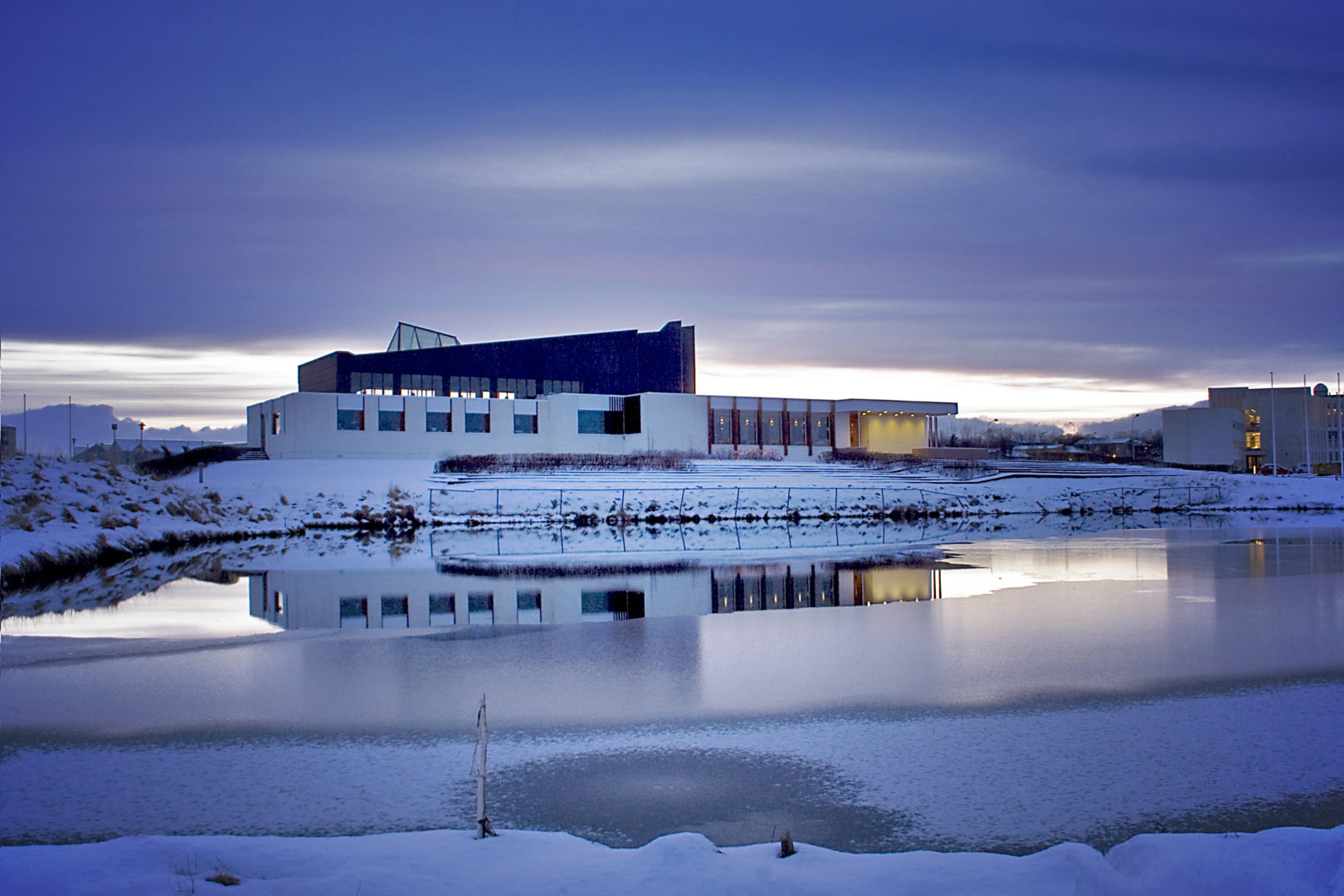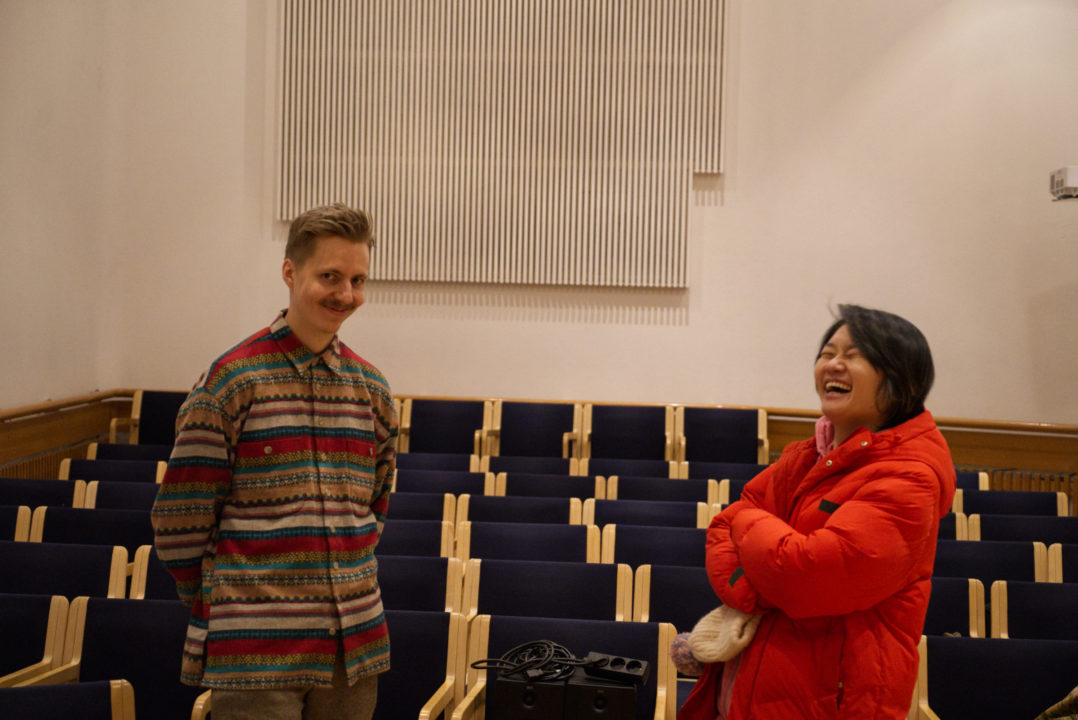Forecast’s Artistic Director Freo Majer met with the two musicians to discuss the importance of meeting face-to-face for a work-stay, and how each of them experiences the mentorship process.
Majer: What’s interesting about meeting for a work-stay in this context?
Aarni: The Nordic house is culturally significant for both Reykjavik and the Nordic region; it’s inspiring to be here and see this collaboration between the Nordic countries. You feel the history here and it’s nice to be able to do something within this continuum. It’s also a good opportunity to revisit the things I’ve done—simply being in a different environment is incredibly important for me, especially since my project is related to my own surrounding. To be able to look at it from a different place is important.
Lee: The reason for the work-stay is to spend time together and have a more immediate response and reaction to what the other person brings to the project. Even though we’ve been working through Skype chats, lots of texting, and listening to the samples Olli has been working on, the immediacy of working together is extremely important. As is the fact that this is a place that’s neutral for both of us.
We’re dealing with sound, but not only sound. Also with space, and audience … it’s great that we get to meet and share ideas.
Aarni: In a way I’m thinking more about this other stuff than about sound. There are a lot of new things for me. Also, I had no idea of the cultural life in Reykjavik and it’s nice that this coincides with some music and art festivals here. We’re doing a concert here, and don’t really know what to expect in term of audience.
Lee: Not knowing who our audiences is going to be—that’s exciting! Even though it’s a joint concert, we’ll be featuring Olli’s work more. I thought doing a concert would be a great way to check where our process is at. It made sense to do it in preparation for the Forecast Festival in April. You learn so much by doing it: Just thinking about a new space, and what a concert is, how to utilize the lobby situation … it’s always interesting to go into places you don’t know and think about ways to make it interesting, both for us and the audience.
Aarni: Yes, when I saw this space and thought about what I can do with it, I actually also got some new ideas for what to do at radialsystem in April.





